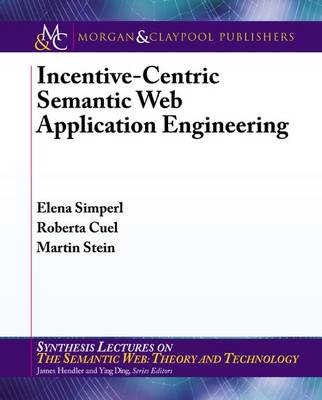While many Web 2.0-inspired approaches to semantic content authoring do acknowledge motivation and incentives as the main drivers of user involvement, the amount of useful human contributions actually available will always remain a scarce resource. Complementarily, there are aspects of semantic content authoring in which automatic techniques have proven to perform reliably, and the added value of human (and collective) intelligence is often a question of cost and timing. The challenge that this book attempts to tackle is how these two approaches (machine- and human-driven computation) could be combined in order to improve the cost-performance ratio of creating, managing, and meaningfully using semantic content. To do so, we need to first understand how theories and practices from social sciences and economics about user behavior and incentives could be applied to semantic content authoring. We will introduce a methodology to help software designers to embed incentives-minded functionalities into semantic applications, as well as best practices and guidelines. We will present several examples of such applications, addressing tasks such as ontology management, media annotation, and information extraction, which have been built with these considerations in mind. These examples illustrate key design issues of incentivized Semantic Web applications that might have a significant effect on the success and sustainable development of the applications: the suitability of the task and knowledge domain to the intended audience, and the mechanisms set up to ensure high-quality contributions, and extensive user involvement.
- ISBN10 1627051864
- ISBN13 9781627051866
- Publish Date 25 January 2013
- Publish Status Temporarily Withdrawn
- Publish Country US
- Imprint Morgan & Claypool
- Format eBook
- Pages 117
- Language English
